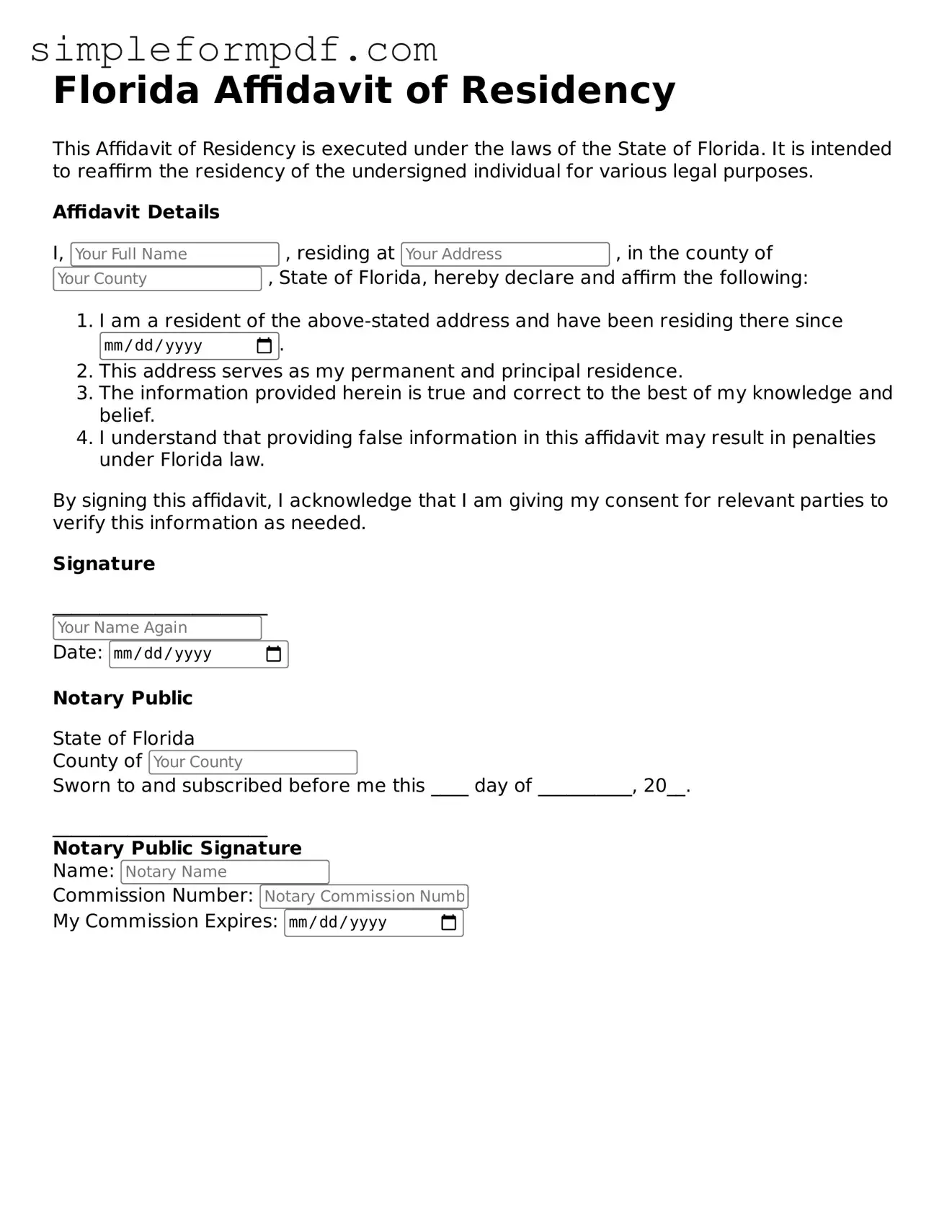Free Affidavit of Residency Form for the State of Florida
The Florida Affidavit of Residency is a legal document that individuals use to declare their residence in Florida for various purposes, such as enrolling in school or obtaining a driver's license. This form serves as an official statement of where you live and can be crucial for establishing residency status. If you need to fill out this form, click the button below to get started.
Launch Editor

Free Affidavit of Residency Form for the State of Florida
Launch Editor
Need instant form completion?
Finish Affidavit of Residency online in just a few minutes.
Launch Editor
or
Download PDF
